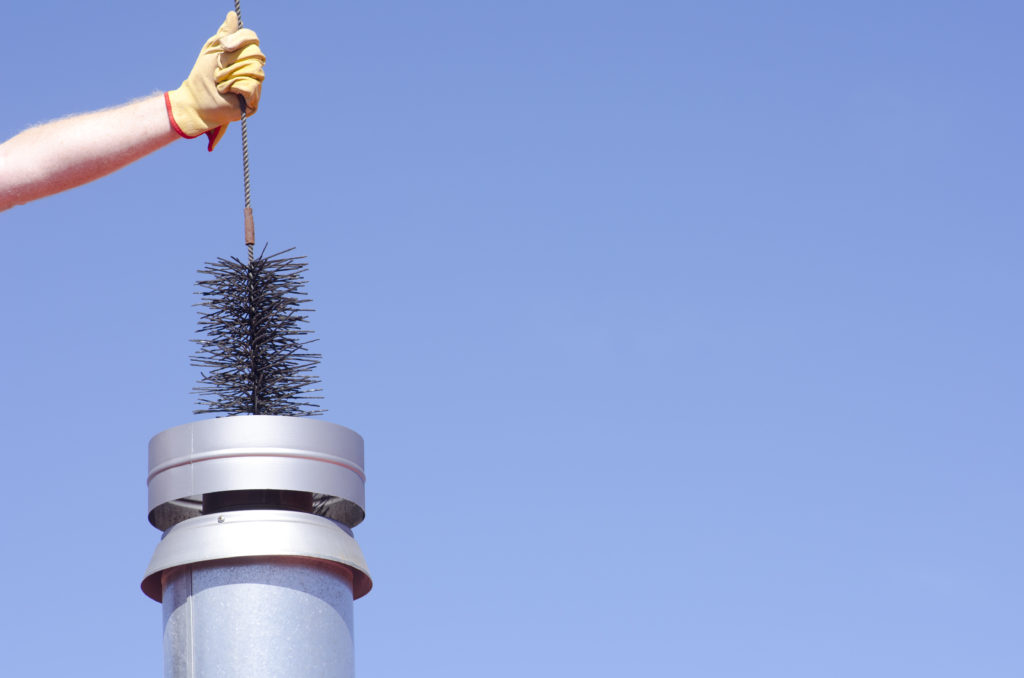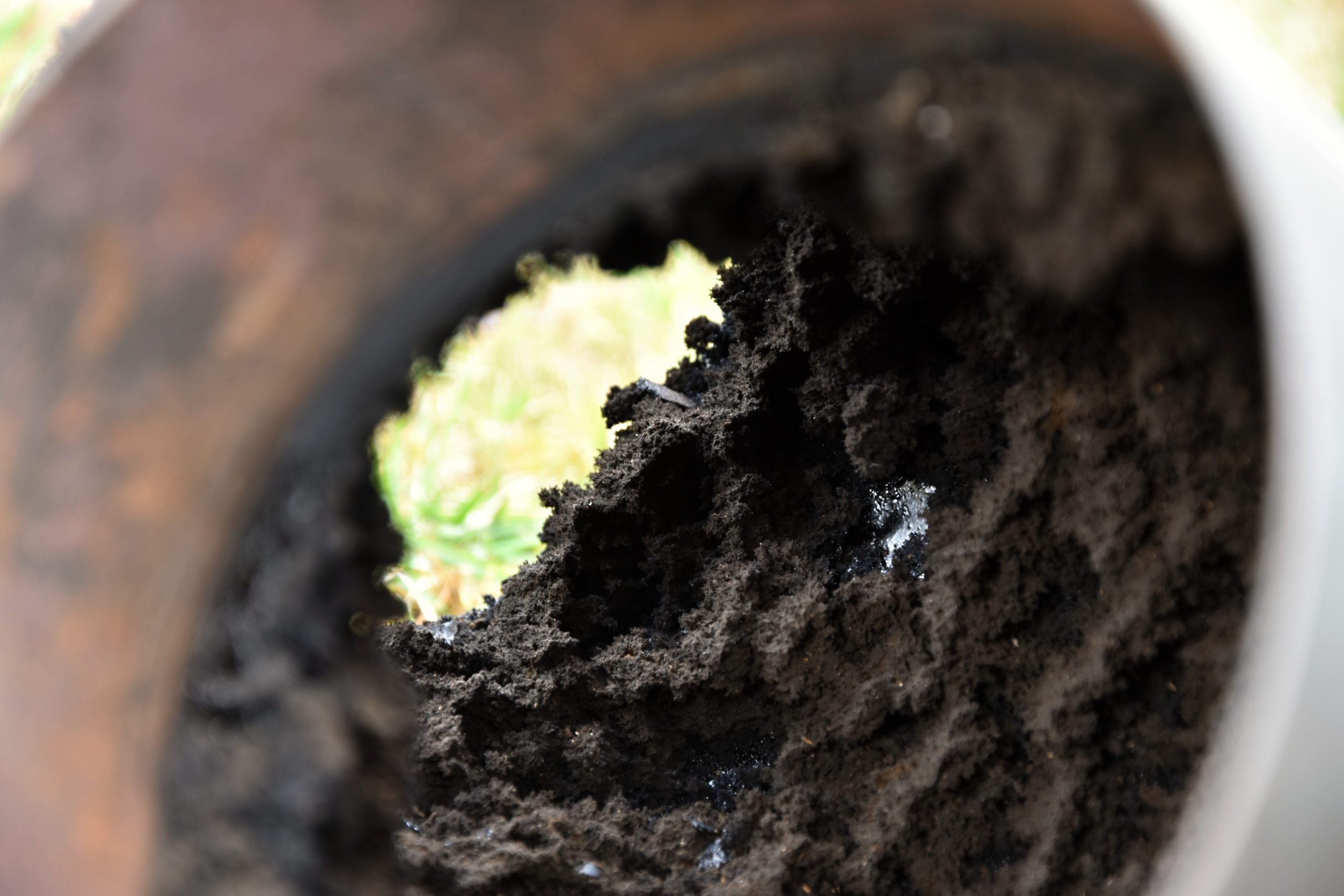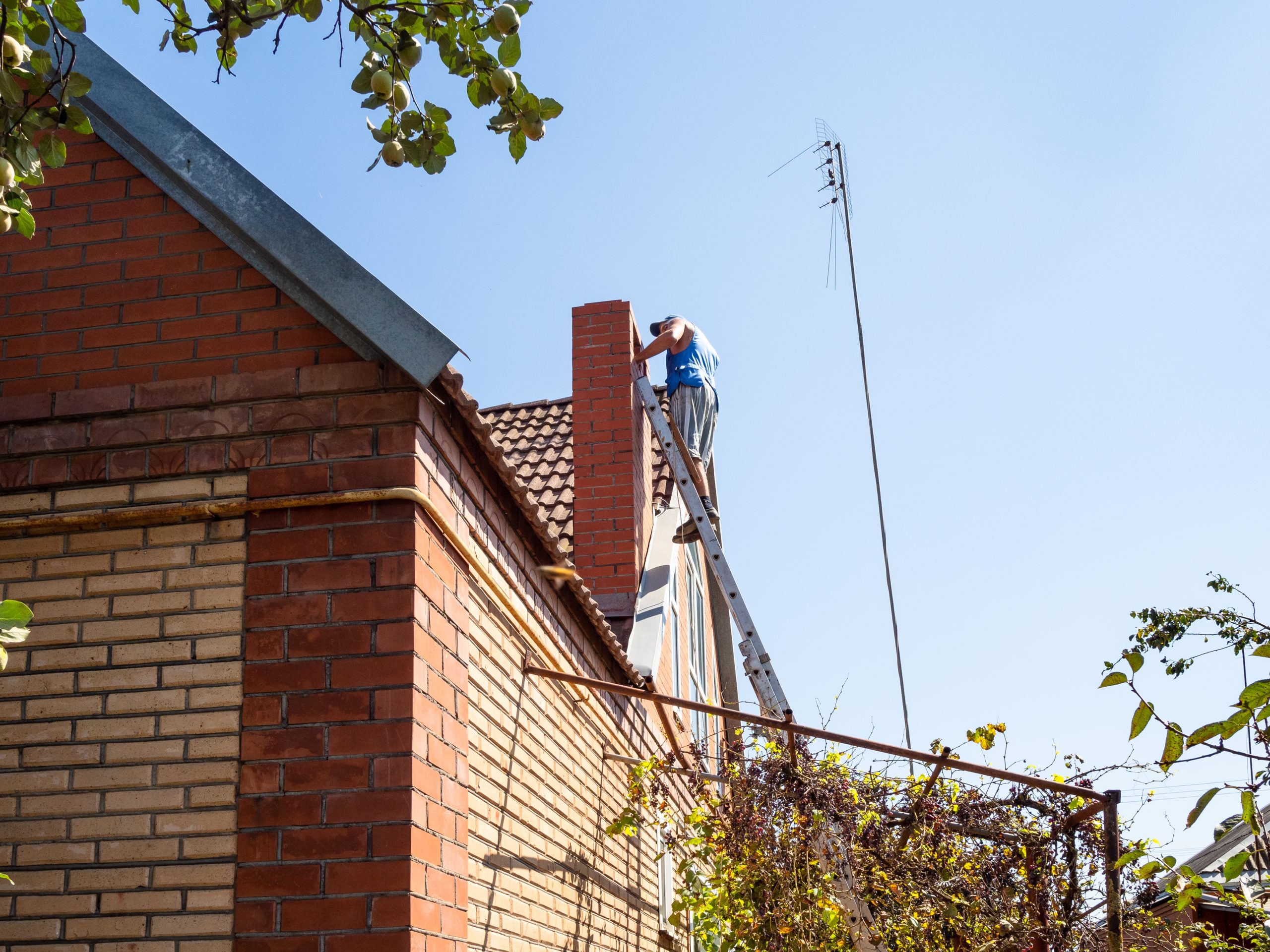Let’s face it, chimney cleaning isn’t the most glamorous chore. But it’s essential for the safety and health of your home. Regular chimney cleaning prevents potential fire hazards, promotes proper ventilation, and ensures your fireplace functions efficiently.
As the nights grow colder and the days grow shorter, many Louisiana homeowners are starting to cozy up by their fireplaces. But before you light that first fire of the season, it’s important to ensure your chimney is in tip-top shape. So, how do you know when it’s time to enlist the services of a professional like SootServ, Baton Rouge’s premier chimney cleaning service?
Signs Your Chimney Needs Cleaning
Before we go into how to do the actual chimney cleaning, you must first learn to recognize the tell-tale signs that your chimney and fireplace require cleaning.
Signs Your Chimney Needs Cleaning
- Unpleasant odors: If your chimney emits a strong smell, even when not in use, it indicates buildup and contamination within the chimney structure.
- Poor fire performance: Difficulty starting a fire or fires that burn irregularly are signs of restricted airflow due to blockages within the chimney.
- Excessive smoke: Smoke filling the room instead of efficiently venting through the chimney indicates a blockage or buildup obstructing the flue.
- Visible creosote: Black, tar-like residue on the damper or interior walls of the chimney signals the presence of creosote, a highly flammable substance formed during combustion.
- Animal activity: Sounds of animals within the chimney or visible signs of nesting materials indicate the need for cleaning and pest removal.
Risks of Neglected Chimneys and Fireplaces
When you ignore the signs and don’t regularly clean your chimney, you risk your home and your family’s safety. Here’s why:
- Increased risk of chimney fires: Accumulated creosote can ignite, leading to fires that pose significant risks to property and safety.
- Toxic gas exposure: Blocked chimneys often lead to the backflow of poisonous gases like carbon monoxide into living spaces, endangering your family and pets’ health.
- Structural damage: Neglected chimneys can suffer from structural issues due to moisture infiltration, compromising the integrity of the home.
- Increased repair costs: Addressing issues promptly through regular maintenance is more cost-effective than dealing with extensive damage that results from neglect.
The Cleaning Process Explained
Whether you opt for professional services or tackle it yourself, baton rouge chimney sweep is a task best handled with skill and know-how.
Steps in Professional Chimney Cleaning
Professional chimney cleaning involves a systematic approach to eliminate accumulated debris, creosote, and potential blockages. Certified experts, such as those at SootServ, adhere to industry standards, employing specialized tools and techniques to guarantee a thorough cleaning process. This typically includes:
- Initial inspection: Involves thoroughly inspecting the chimney’s interior and exterior to identify potential issues or hazards.
- Flue cleaning: Using specialized tools and brushes, creosote and soot buildup are carefully removed from the chimney walls to reduce the risk of chimney fires.
- Debris removal: Any debris, such as animal nests or leaves, is cleared from the chimney to ensure proper airflow and ventilation.
- Damper inspection: The damper is inspected for proper functioning, ensuring it opens and closes smoothly to regulate airflow.
- Post-cleaning inspection: A final check is conducted to confirm the cleanliness and integrity of the chimney, assuring that it’s ready for safe use.
What to Expect During a Fireplace Cleaning
During a fireplace cleaning, expect the following:
- Preparation: The area surrounding the fireplace is protected to prevent mess. A vacuum may be used to collect ash and debris.
- Interior cleaning: The fireplace interior, including the firebox and hearth, is cleaned to remove creosote, ash, soot, and any remaining debris.
- Damper inspection: The damper is inspected for functionality, ensuring it operates correctly to control airflow.
- Final check: A final inspection is conducted to ensure the fireplace is clean and safe, with any necessary recommendations for maintenance or repairs.
Frequency and Timing of Cleaning
Determining how often your chimney needs cleaning is crucial for maintaining its efficiency and safety.
Recommended Cleaning Intervals
So, how often should you clean your chimney? Experts at the National Fire Protection Association (NFPA) and the Chimney Safety Institute of America (CSIA) recommend that all chimneys be cleaned at least once a year, preferably before the start of the heating season. However, if you use your fireplace frequently, you may need to have it cleaned more often.
However, how often chimney sweeps occur depends on factors such as:
- Frequency of use.
- Type of fuel you burn in your fireplace.
- Chimney design and size.
- Environmental conditions.
- History of animal nesting
Best Times of Year for Cleaning
Spring or early summer is the best time to schedule a chimney sweep, especially for wood-burning fireplaces. This strategic timing allows for the removal of debris or animal nests that may have accumulated during inactive months. Cleaning before the colder seasons ensures you have a clear chimney ready for peak fireplace usage.
The Role of Regular Cleaning in Prevention
Regular chimney maintenance safeguards your home and contributes to a safer and more efficient heating experience.
Avoiding Chimney Fires and Other Hazards
Creosote, a byproduct of burning wood, accumulates within the chimney over time, creating a highly flammable environment. Regular cleaning removes this buildup, significantly reducing the risk of chimney fires that could threaten your home and safety.
Extending the Life of Your Chimney and Fireplace
Regular maintenance, including cleaning, contributes to your chimney and fireplace’s overall health and longevity. You avoid potential structural damage and deterioration by addressing minor issues promptly and preventing the accumulation of debris and creosote. Therefore, extending the life of your chimney and preserving its efficiency and functionality for years to come.
SootServ, Baton Rouge’s Premier Chimney Cleaning Service
Whether you’re in Baton Rouge, New Orleans, Lafayette, Shreveport, or Ruston, safeguarding your family and investment begins with understanding the significance of a well-maintained chimney and fireplace.
The expert technicians at SootServ are familiar with the diverse needs of Louisiana homeowners. We make chimney cleaning a breeze. From online scheduling to flexible appointment times, we work around your needs to ensure your fireplace is ready whenever you need it.
Don’t wait until it’s too late; schedule your chimney cleaning today. Call SootServ at 225-228-4654 or visit our website for an instant quote.



